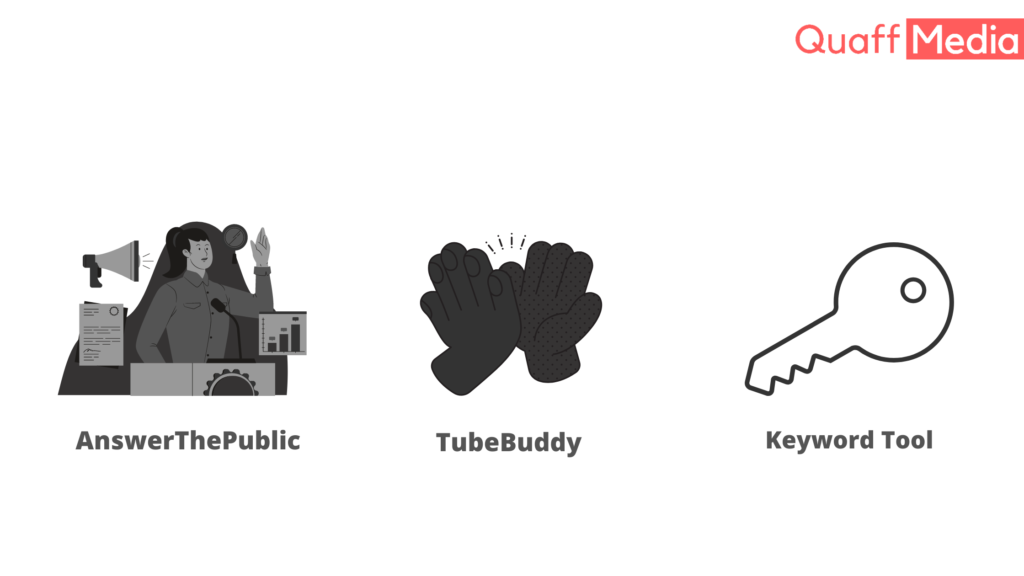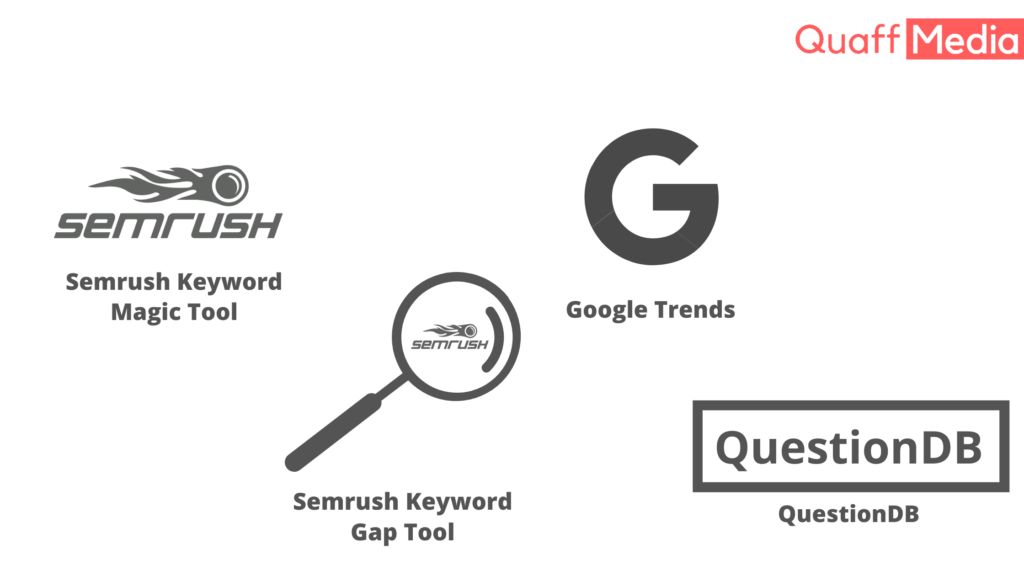Introduction
To improve your website’s SEO you need the best set of keywords. To get the best set of keywords you need to execute effective keyword research. For effective keyword research, you need the best tools. But there are some many tools available and there’s too much competition, how do you know which tool is the best?
In this blog, you’ll find the top 7 effective keyword research tools that can help you strengthen your content for a better reach.

1. Semrush Keyword Magic Tool
The Keyword Magic Tool provides data of over 20 billion keywords. It has a filtering system, that categorizes keywords by topic, search intent, question type, SERP features, etc. This effective tool shows Keyword difficulty and competition metrics.
This is a powerful tool for content optimization and ideation. With the spectrum of keywords that this tool provides, you can effectively use this tool for discovering niche topics.
Use the SEMrush Keyword Magic tool to determine a top-notch content strategy for your website.
2. Semrush Keyword Gap Tool
This is an SEO competitor analysis tool that shows comparisons with the keywords that your website rivals use. You can also identify the good ranking keywords that are available on your rival’s page but you’re missing out.
This tool gives you a competitor’s keywords assessment, locates gaps in the content strategy, and helps you create a competitive SEO strategy. This includes giving you a list of almost all the keywords including organic, paid, and PLA keywords. This is an excellent tool for competitive insights and keyword strategy.

3. Google Trends
Google Trends is a free tool for data analysis and assessment. This tool can be used to discover and assess current and past search trends. With this tool, one can identify what is trending in different areas around the world based on data and searches that Google collects.
Content strategy, audience insights, cretic paid ad campaigns, etc are some of the data that Google trends present. This tool can help create a list of keywords that are trending.
4. Question DB
QuestionDB displays questions asked by people on forums and websites. This tool doesn’t focus on keywords but focuses on the searcher’s queries and intention.
This is an excellent tool for content ideation. Its immense collection of questions gives you a deep insight into what the audience is interested in. On the basis of its insights, you can create content that is in demand by the audience.
5. Answer The Public
This is an excellent and effective keyword research tool that summaries Google autocomplete suggestions and provides you with a list of long-tail keywords. It aggregates related queries and on the basis of that creates word clouds. Interesting isn’t it?
Answer the Public is an awesome tool for content ideation and strategy. It helps you analyze quite accurate questions and key phrases that your target audience might be using. By using AnswerThePublic you make sure that you’re not missing out on any long-tail keywords. Thus, This tool helps you create more relevant content.
6. Tube Buddy
TubeBuddy is a browser extension helpful to marketers whose strategy revolves around Youtube. This tool helps them optimize, promote, publish, and proliferate their channels. This comprehensive tool includes Keyword Explorer, a feature that assists creators to identify long-tail keywords and trending topics.
YouTube-specific keyword research could be performed with Keyword Explorer. Apart from that, they have templates for split testing and many additional tools useful for testing and applying essential keywords to the channel.
7. Keyword Tool
The best thing about Keyword Tool is that it collects autocomplete data from a variety of popular platforms such as Google, Amazon, eBay, Playstore, Bing, Youtube, etc. This tool is great for creating a list of long-tail keywords, hashtags, and products.
Keyword Tool helps discover long-tail keywords which are not shown by Google’s Keyword Planner. Thus, the Keyword Tool is excellent for organic search, content marketing, and Search engine optimization.

